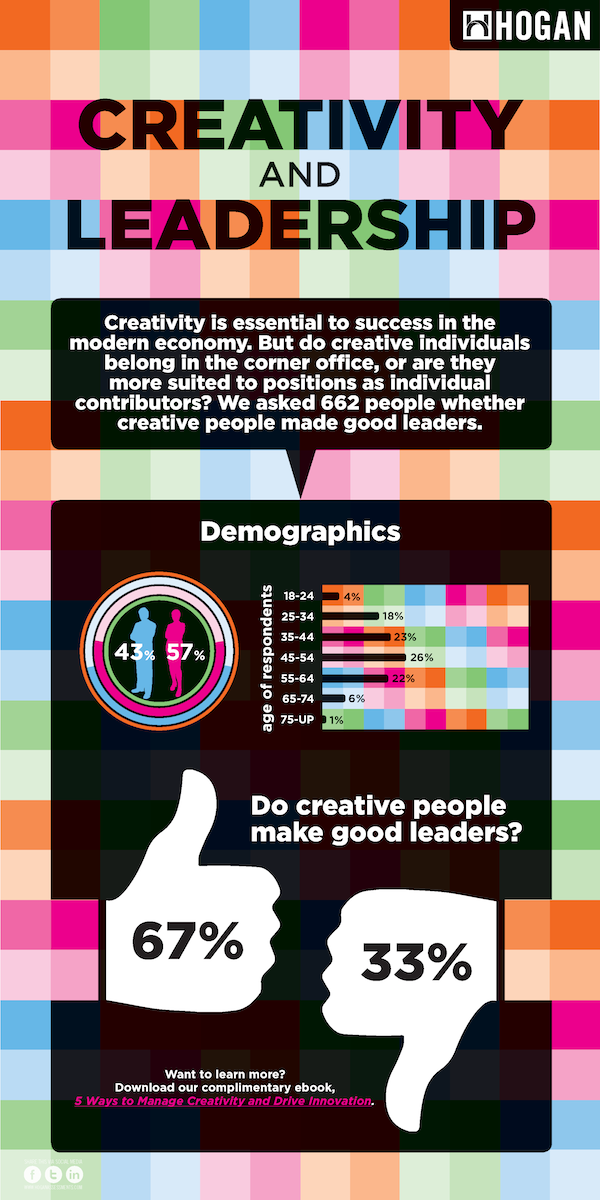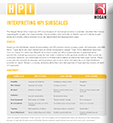The relationship between employees and their bosses, as well as that between followers and leaders, is one of the most studied and discussed topics in business and psychology. Yet, it remains one of the least understood. Hogan conducted a survey of 1,000 respondents examining the relationship between employees, bosses, and personality.
Rate of Bad Managers
Research shows us that more than roughly 60% of people currently in a leadership position will fail, usually due to flaws in interpersonal behavior that prohibit them from forming and maintaining a high-functioning team. Our survey results support this research – the average respondent would be willing to work for fewer than half of their former bosses (around 45%).
Respondents were most likely to describe bad bosses as:
| Arrogant |
52% |
| Manipulative |
50% |
| Emotionally Volatile |
49% |
| Mircomanaging |
48% |
| Passive Aggressive |
44% |
| Distrustful of Others |
42% |
As job level increases, there are no significant differences in terms of how people describe bad bosses.
Great bosses, on the other hand, were most likely to be described as:
| Trustworthy |
81% |
| Calm Under Pressure |
64% |
| Responsible |
63% |
| Inspirational |
59% |
| Good at Business Strategy |
48% |
| Tactful |
47% |
As job level increases, people are more likely to describe good bosses as good at business strategy, and less likely to describe good bosses as sociable.
Why can’t we be friends?
- Respondents were most likely to say it is important for them to like their boss.
- Likewise, respondents were most likely to say it is important for their boss to like them.
- Respondents were evenly split when asked if they work harder for bosses they consider friends.
Lonely at the top: As job level increases, people are less likely to say it is important that their bosses like them or that it is important they like their bosses.


 In the workplace, one rotten apple can spoil the whole bunch, especially when the bad apple is in a leadership position. Passive-aggressive leaders create toxic work cultures that reward compliance and punish dissent or criticism, even if it is constructive.
In the workplace, one rotten apple can spoil the whole bunch, especially when the bad apple is in a leadership position. Passive-aggressive leaders create toxic work cultures that reward compliance and punish dissent or criticism, even if it is constructive.
 For decades, Hogan has helped organizations find and develop C-suite talent. Now, we’re excited to introduce a report series designed for the middle – the on-the-ground managers responsible for bridging top management with staff and delivering organizational results.
For decades, Hogan has helped organizations find and develop C-suite talent. Now, we’re excited to introduce a report series designed for the middle – the on-the-ground managers responsible for bridging top management with staff and delivering organizational results.
 Companies have spent millions of dollars designing complicated competency models, fruitless training programs, and elaborate perks to select, develop, and retain their middle managers. But when you boil it down, only three things really matter:
Companies have spent millions of dollars designing complicated competency models, fruitless training programs, and elaborate perks to select, develop, and retain their middle managers. But when you boil it down, only three things really matter: As a leader in personality assessment, we've been studying this stuff for decades (really, ask us anything). We know cognitive ability is only a partial predictor of career success. In most jobs, it's EQ, the ability to identify and manage your own and others' emotions, that really matters. People skills determine success, and individuals who lack the ability to build effective relationships are destined to fail -- no matter how smart or talented they are.
As a leader in personality assessment, we've been studying this stuff for decades (really, ask us anything). We know cognitive ability is only a partial predictor of career success. In most jobs, it's EQ, the ability to identify and manage your own and others' emotions, that really matters. People skills determine success, and individuals who lack the ability to build effective relationships are destined to fail -- no matter how smart or talented they are.  The Hogan Personality Inventory is measure of personality assessment that provides leaders the strategic self-awareness they need to get along and get ahead. Raw scores on HPI subscales, available in many of Hogan’s reports, allow interpretation above and beyond main scale scores.
The Hogan Personality Inventory is measure of personality assessment that provides leaders the strategic self-awareness they need to get along and get ahead. Raw scores on HPI subscales, available in many of Hogan’s reports, allow interpretation above and beyond main scale scores. The Hogan Certification workshop will be held in a new location this October. The Westin New York at Times Square will host the two-day workshop where participants will leave with an in-depth understanding of how to use and interpret the Hogan suite of assessments. Register for this popular workshop location before it fills up.
The Hogan Certification workshop will be held in a new location this October. The Westin New York at Times Square will host the two-day workshop where participants will leave with an in-depth understanding of how to use and interpret the Hogan suite of assessments. Register for this popular workshop location before it fills up. Everyone has made a bad hire, and considering they typically cost 150% of their annual salary, chances are you don't want it to happen again. This new book by Abhijit Bhaduri outlines how employers should weigh education, experience, competence, and personality to hire the right people and drive success at their companies.
Everyone has made a bad hire, and considering they typically cost 150% of their annual salary, chances are you don't want it to happen again. This new book by Abhijit Bhaduri outlines how employers should weigh education, experience, competence, and personality to hire the right people and drive success at their companies.